
Brian's Run Pod
Welcome to Brian's Run Pod, the podcast where we lace up our running shoes and explore the exhilarating world of running. Whether you're a seasoned marathoner, a casual jogger, or just thinking about taking your first stride, this podcast is your ultimate companion on your running journey.
Join us as we dive deep into the sport of running, covering everything from training tips and race strategies to personal stories and inspiring interviews with runners from all walks of life. Whether you're looking to improve your race times, stay motivated, or simply enjoy the therapeutic rhythm of running, Brian's Run Pod has something for every runner.
Brian's Run Pod
Strides of Change Paul Bulter's Running Saga part 1
Have you ever considered the transformative power of putting one foot in front of the other? Meet Paul Butler, whose reluctant trot around the school track blossomed into an inspiring tale of endurance and community, proving that even the most hesitant of athletes can find their stride. In our latest episode, we sit down with Paul, a once unenthusiastic school athlete who has since become a staple in the running world, boasting over 250 park runs and 100 Crane park runs. His narrative is a fascinating look at personal growth, the unexpected joys of joining a running club, and how immersing oneself in a community like the Stragglers in Kingston can lead to leaps in athletic performance.
This heart-pumping episode also takes you through a history of running events from Paul's first strides to the inclusive global phenomenon of park runs. We explore how the commitment to regular training, especially speed work, can propel a runner from backmarker to front runner. Paul's reflections on the social and competitive nature of the sport, alongside the evolution of running events, perfectly encapsulate the spirit of running—a blend of personal challenge and shared experiences. Whether you lace up your sneakers daily or are contemplating your first jog, join us for an episode that celebrates the journey of running, the camaraderie it fosters, and the relentless pursuit of personal bests.
Lucy Tomlinson Christmas Offer for Welcome Pilates
Brian's Run Pod has become interactive with the audience. If you look at the top of the Episode description tap on "Send us a Text Message". You can tell me what you think of the episode or alternatively what you would like covered. If your lucky I might even read them out on the podcast.
Instagram
Hi and welcome to Brian's Run Pod, and it's me, your host, brian. Well, today I'm interviewing someone I know through my local church. Come to think of it, I have interviewed quite a few people there from my church. Anyway, as is the way on Brian's Run Pod, I have split the podcast into two and started off by asking Paul, my guest, what was his experience of exercise in school. Now, what has become a common theme with these interviews? People's experience of physical exercise, or PE as we call it here in the UK, at school was not great. It isn't until later on that people have found running or exercise not so arduous and something that they can do very much in their spare time. Anyway, without further ado, let's get into the podcast. So you're thinking about running, but not sure how to take the first step. My name's Brian Patterson and I'm here to help. And welcome to Brian's RunPod. Well, hello there, fellow runners, and welcome back to b's RunPod, your go-to podcast for all things running related.
Speaker 1:Now, as part of the series of interviewing local runners in my local area, I have a wonderful guest on the show today. Now, in my previous episodes I've interviewed my friend John, and also the vicar's wife, plus others, and they all have incredible stories, and today's episode is all about an incredible journey of my good friend, paul Battler, a true running enthusiast, who's not only completed an astounding 250 park runs, but has also conquered 100 crane park runs. Now, if you don't know what a park run is, well, according to their website, park run is a free community event where you can walk, jug run, volunteer or spectate. Parkrun is five kilometres and takes place every Saturday morning. It was started by Paul Sinton-Hewitt on the 2nd of October 19, 2004. So join me as we delve into Paul's inspiring journey into the world of running, from his humble beginnings to his remarkable achievements. Welcome to the podcast, paul. How are you doing today?
Speaker 2:Yeah, very well, brian, thank you. Yeah, nice to see you Nice to see you.
Speaker 1:So, like I do with everyone, I kind of like to start right at the beginning. So what were you like at school in terms of, you know, physical activity or running?
Speaker 2:Well, I was quite a reluctant runner, to be honest with you. I started doing cross-country at school. I was at a grammar school and pretty much every class involved a cross-country run, or every sporting afternoon at the start of it, before you did football or rugby, and I was always sort of trading somewhere at the back in the, in the back five percent. So, yeah, yeah, certainly the start was not particularly auspicious and, if I'm honest, I didn't particularly enjoy running at that point because I wasn't particularly fit so and I wasn't, you know, blessed with a lot of the sporting ability of some of my peers either.
Speaker 1:So, yeah, so was that sort of across all the sports you did at school. Yeah, were there any sports that you kind of excelled at?
Speaker 2:Not really to be honest with you. No, I enjoyed playing football. Football was a big part of my life still now, yeah, but yeah, very much an enthusiastic participant, but not particularly good. When it started to change for me running-wise was when I was about 14. I think there was a local fun run down in Torbay and it was a 10K and I trained for it and at that point I started to sort of see the impact of training and how you could improve just by putting effort in. So I've always been, you know, I think it's something that's always stayed with me since then. The impact of training and how you could improve just by putting effort in so I've always been, you know, I think it's something that's always stayed with me since then is when you start to put effort in and you see the results. That creates enthusiasm. And it was quite interesting really, because then all of a sudden my cross-country time started to improve at school and suddenly I wasn't the back marker anymore. I was actually sort of starting to move up through the field.
Speaker 1:So yeah, so you can see that correlation of the kind of the effort that you put in.
Speaker 2:Yes, yeah, yeah, yeah. So yeah, and pretty much since then I've run, you know, a couple of gaps, maybe in my early late teens, early 20s, and then one maybe sort of mid-20s, but I've run pretty consistently since then, you know, right the way through my life. So yeah.
Speaker 1:So when you were at uni were, did you? Did you do quite a bit of running then, or was it kind of yeah so you sidetracked by?
Speaker 2:I was sidetracked. Yeah, that was one of the. That was one of the kind of periods where probably running took a back seat. Yeah, I did join a running club actually when I first went to university in Winchester. So I joined Wessex Roadrunners purely as a way of getting to know people. At that point I was running pretty well and I actually quite enjoyed it, but it faded away really as I got into university life and the student union took more of a hold.
Speaker 1:Yeah, so yeah, after university, so you kind of went into working life, was there, you know, kind of a moment in time where you thought, oh well, you know, I must get back into getting fit or something like that, and then you may have discovered running then, or was it later on?
Speaker 2:No, I'll tell you what really happened. What really inspired me was when I was about 22 and I was living in Norburton, so I'd just finished at Kingston University, I'd done my postgraduate there and I'd done a bit of running there, because we were so handy for Richmond Park that I, you know, used to use it as a way of getting out really at the weekends and just sort of taking the air. You know I love Richmond Park and really enjoyed that. And then, just after I started work following my postgraduate, my dad phoned me up and said Talk United have got a place in the marathon for supporters. Are you interested?
Speaker 1:Oh right.
Speaker 2:And this was in February, eight weeks off the marathon, and I said so I'd watched my dad the year before running it and he was running in this year's marathon, right, and I thought you, you know what, I'll give that a go, really. And I didn't have a lot, you know, I didn't have a lot on in my life at that time in terms of the fact I was working, yeah, but probably didn't have that many social connections in and around London, so I had quite a lot of time on my hands to train, yeah. And so, yes, I ran that year's marathon with my dad I say with my dad. My dad ran it as well. He was 51 at the time and I was, I think, 22, something like that, but we both ran the same marathon the same year, which was something that will always stay with me really.
Speaker 2:So yeah we've got photos of us both of our medals afterwards.
Speaker 1:And so were you running together, or did you kind of like split up and do your own race?
Speaker 2:We run our own races, so I ran actually from a separate start. So I ran in something called the Football League Challenge, which was run in its own right, and they started at the elite start.
Speaker 1:No.
Speaker 2:Yeah, yeah. So it was quite bizarre. I think it was the red start and there was very few runners up there at all, and then we filtered into the main group of runners further down. So, yeah, it was a very interesting experience because I was in there with some fairly fast football club runners as well who were trained, you know, extensively for it, and it was the same the year following as well. We had this kind of almost like an elite, very small start and off we went and eventually filled into the field somewhere, sort of going down through black heath area.
Speaker 1:So yeah, was being your first marathon. I take it that was your first marathon, wasn't?
Speaker 2:it.
Speaker 1:Yes, yeah, first ride it was 1996, yeah yeah, so was there a sort of a temptation of going too fast at the beginning and sort of getting carried away with the you do have that.
Speaker 2:But I think one of the things I knew was I had to be disciplined with it. You know you have to run well within yourself. The mistake that people do make about a friend is going off too quickly. But I knew I hadn't trained. You know I trained for eight weeks so I'd got up to quite a good mileage actually in eight weeks, but I didn't have the longer build-up, as it were, and I actually ran quite sensibly. I didn't run with a watch, but I ran watching the clock all the time and understanding where I was and gauging how many minute miles I was doing. Basically. So I knew I was well within where, where I should be. I actually, you know, did pretty well, really considering what was your, what was your?
Speaker 2:time, so I ran it in 3.39 that year so yeah, yeah, that's really good which I was very surprised by, because obviously I was kind of leaping into the unknown a little bit, really, in terms of not having done anywhere near that distance before you know, I'd done 10 miles and half marathon, but I'd never run seriously, you know, any further than that. I think I did the the breakfast run, which is 16 miles, as part of my build-up, sort of three or four weeks prior, which gave me a good you know build, but it's nothing longer than that.
Speaker 1:Yeah, yeah okay, yeah, yeah I did that one yeah, I remember doing that when it was the foot and mouth year or something yeah, yeah, it's a great one actually. So, yeah, yeah yeah, but so obviously you had some kind of innate you know ability, because obviously eight weeks out training for a marathon, but obviously you must have had some kind of endurance I think.
Speaker 1:So yeah, you know fitness yeah, there, yeah, and you were obviously because I hear stories I mean I interviewed someone well, coach, where their first marathon they completely blew up, you know they didn't take enough gels with them or they didn't pace themselves properly. You do hear kind of like horror stories with their first marathon. So obviously you were quite disciplined, yeah. So mentally you must have been quite good, you know, not sort of being able to hold yourself back.
Speaker 2:Yeah, and know, done a lot of reading on the, the science of marathons and the importance of splitting the marathon into two. You know the first 20 miles and then the, the final six, yeah, and certainly you know all my training had been around getting up to 20 miles and I see a lot of people, you know, when they're doing the marathon coverage. You've done sort of 15, 16 miles in training, yeah, but that to me is not really preparing yourself for a marathon. Here you need to get up higher, you know, and it's all about being on on your feet, isn't it?
Speaker 2:yeah, so yeah yeah, and getting time on feet and actually that was the way I did it. I did it time on feet, my training. So I tended to focus more on, you know, building up my long run by 10 minutes. You know, another 20 minutes on top each week just to get that Sunday long run really lengthened in terms of time on feet. And you know, I think I got to three laps of Richmond Park around that yellow path and that was kind of the longest I'd done. But it was literally looking at you know where I was against the watch really each week and knowing when I got back in that I'd done. But it was literally looking at you know where I was against the watch really each week and knowing when I got back in that I'd done two and a half hours, two hours, 45 minutes and building that way really.
Speaker 1:So, yeah, and how did you do down to?
Speaker 2:He did well. Yeah, I mean he was, I think, over four hours, but considering he was 51 and working full-time, very long hours, he did really well, and he did two years when he was 50 and 51.
Speaker 1:Yeah, okay, so maybe he had his genes, as it were yeah yeah yeah, no, I mean he enjoyed it.
Speaker 2:I think he he enjoyed it, but he ran his. I think that was really his last serious run, the, the marathon he did with me, and after that he, you know, he started to maybe get more into walking and yeah, yeah all right and there were no ill effects.
Speaker 1:Afterwards you weren't kind of like no injuries or anything like that no, not at all.
Speaker 2:I was very lucky really. You know, that first marathon really sort of inspired me, I think, to keep keep going with my running journey and I, you know I really really enjoyed running in and around kingston and outman, rich, from park and along the river, you know, doing those routes, and it became, you know, quite ingrained with me at that point really I really started to get out and about and and do more and more running, uh, weeks a week so yeah, I mean, I I think I'm well for our international listeners.
Speaker 1:I mean, we live in sort of twickenham, the suburbs of london, so we're kind of quite lucky here. So do you think you know, as one of the lessons of people who are looking to do, let's say, marathons, it helps that to have sort of some you know, running in sort of surroundings which can be quite um sort of I don't know, relaxing, as it were.
Speaker 2:Oh, hugely, yeah, I mean, yeah, I think in some way which part you've got. The combination of the conditions and the environment that you're in Getting up at I don't know, seven o'clock on a Sunday and running in Richmond Park when it's frosty is an absolute pleasure in terms of what you see, you know the frost on the ground, the birds, just the colour of the sky, you know, and the way that changes as you come through the seasons into spring and that sort of period, running in and around easter as you're running leading up to the marathon, is really quite a pleasure, you know, because it's getting lighter and you're starting to see buds on the trees and you know young animals and all the traditional sort of easter type things. Yeah, so I think it really does help. You know you've got somewhere.
Speaker 2:I think the other thing in richmond park is it's got good paths, you know. So you can. You can keep going. You're not worried about ruts and tripping over things. It's all fairly, fairly consistent. You know where you are. You can just get the miles in there, you know. So I think we are really lucky to have that combination of you know big. We've got three big green areas here. Really, you've got home park, you've got bushy park and you've got richmond park, but also you've got places like the crane, which you know probably anywhere else would think they were hugely lucky to have the crane valley to to run up and down that's right.
Speaker 1:Yeah, you can go along the towpath.
Speaker 2:Yeah, yeah, yeah you know, but we kind of almost take it for granted because we've got so many other big areas to run around, uh, on top of that.
Speaker 1:So yeah, and did you do any sort of speed training or anything like that?
Speaker 2:not, not for those two really no I ran, I concentrated on time on feet I mean I did shorter runs, yeah, but there wasn't any real focus on speed, no so there's no or not speed, but you know, like tempo running that kind of thing or nothing like that no, I mean I I'd done, I think, what I what I moved on further down the line and started to focus on things like half marathons, and that's what I did do more tempo running, you know. You would concentrate on doing the last 15 minutes of the run slightly quicker, for example to finish the run off, just to get that real feeling of pushing yourself a bit hard.
Speaker 2:So you might run an hour and a quarter and the last quarter of an hour was was pushing, you know yeah and that was more, I suppose, my, the time when I started to focus a bit more on speed, and the other time, you know where I did a lot of speed training, was a bit later on. So when I joined the stragglers in kingston, they had quite a structured speed training program and they had a couple of things where you could actually work to focus on, for example, doing a 10k and within that you'd have hills and speed training sets that you do together on a tuesday night, and that was really good actually, and that was later on. That was in my 30s, but that was when I really sort of noticed the impact of running different ways yes, you know as part of an overall strategy and how that could really impact your speed as a runner.
Speaker 2:Yeah, so.
Speaker 1:So it's not. It's not just about the mileage, it's kind of more about the intensity. That can be as beneficial. Yeah, yeah, yeah.
Speaker 2:Particularly, I think, for 10Ks and those sorts of distances where you haven't got to think about time on feet. I think really mixing things up does really impact.
Speaker 1:so yeah, and also the fact that you may be I don't know short on time and I know we go to the same gym, but I know sometimes A lot of people hate the treadmill. But just doing, let's say, maybe an interval session on the treadmill kind of makes it a little bit more interesting.
Speaker 2:Yeah, that's right.
Speaker 1:And also it kind of helps with I mean not sort of going off on a tangent or whatever, but you kind of get an idea as to your pace. Yes, your pace should be that kind of thing. So you know you can either do you know 100 meter sprints or you could do a 1500 meter tempo run, that kind of thing. So, yeah, you know you can either do you know 100 meter sprints or you could do a 1500 meter tempo run, that kind of thing.
Speaker 2:Yeah, that kind of thing we used to run on a tuesday night out on riverside drive, which is the other side of tennyson lock, and we used to meet at the lock end and we used to do, you know, intervals of you do one minute out, one minute back, and it would almost be a handicap system where you were expected to get back to where you started. So you do one minute out, you'd stop wait you know you'd all wait together.
Speaker 2:Yeah, and then wherever you'd finished you'd start from to get back in again to where you'd started from. So those who'd gone out slightly quicker had to catch the people who they'd already, who they'd gone further than on the way back in, if that makes sense. So that created a sort of element of competition going back.
Speaker 2:Yes, yeah and it was out and back, out and back, and you do triangles. You might do one minute, two minute, three minute, or you might do a different set of slightly longer. You know, four minute out, four minute back, and the whole thing was about building your ability to recover, basically so yeah, so do you think I mean touching on that?
Speaker 1:I think it's something I've done, talked about in the past is to help motivate you to kind of get out the door is by going somewhere to a running club like the stragglers or to a local running club where you not it's not just about running, but it's the community you know and you're meeting other people and you're making those connections yeah, I mean I've stopped going to the stragglers now, but I went through, you know, a period where it was a really big part of my life and I'd see the one the same group of people on a Tuesday night.
Speaker 2:Then we'd go on a Thursday night, which was the main club night, and you'd go and you'd sit and have a pint afterwards and they'd do the club announcements. There might be some awards. They'd run a monthly handicap race as well, where the whole club came together on a handicap basis out at the Hawker Centre. They've moved now over to Bushy Park, but the principle of that again was about including everybody and then you'd see the same group again at bushy park on a saturday doing the park run or a race event, and you started to build quite a nice social network from that.
Speaker 1:So yeah, yeah, so you touched on the park run, so when did you start doing the park run?
Speaker 2:So I started back in 2005. So it wasn't that long after Paul had started running it in Bushy Park and it was the Bushy Park time trial at that point and I think I responded or I'd seen it advertised in the Stragglers magazine because Paul was a member of Van der Harriers which is one of the competitive clubs to stragglers or one of the other clubs in the area, but he was also a member of stragglers as well.
Speaker 2:So I knew quite a lot of people that were going and I went along and the first one I ran there was about 40 of us there and I think it started with 13. So it hadn't really built that much on from where it started from in terms of numbers. And it's quite funny to look back at that now and think you know that I'd done run a park run, as it is now, with 40 other people, when you know that event now gets between 1400 and 1600 runners pretty much every week, unless it's tipping it down with rain. So, yes, it's quite amazing in terms of the scale from you know where it started to where it is now. But again, that was, I think you know, doing that.
Speaker 2:Those early Saturdays was part of my you know, the period where I really did become almost addicted to running because you know you started to see your time come down. You know, and it was as a result of your what I touched on earlier on in the conversation you know what you put in, you get back out, yeah, and I was doing more and more running and seeing my times come down, you know, very gradually, and I was running against my peers. Although it's meant to be quite an informal event, there was always that kind of age of competition where you knew who else was running and what they ran at and invariably you'd have the same people finishing down the straight down Chestnut Avenue because the route was different. Then You'd run back down Chestnut Avenue to finish almost oh right. You'd be following people down Chestnut Avenue who you knew might have finished 10 seconds ahead of you last week and you'd be desperately trying to get tighter to them so where it starts now, which is at the car park?
Speaker 1:yeah, so that's not.
Speaker 2:That wasn't the original well, the original start was actually over there, but it was in a different area, pointing out, so okay, it sort of used to head out around that end of the park and do a loop round past the playground and then out around the track, almost. So okay, it's a completely different route now. It's what we call the butterfly route, which seems to take more, more people and is probably better thought out in terms of just taking some of the weight off some of the tracks really.
Speaker 1:So yeah, because because where it is now it's kind of like it's like that stampede, yeah, going all the way down the end.
Speaker 2:Yeah, I mean, that's probably, you know, I think that's one of the difficult things actually for me, because I take the, the children, you know, and they're not huge fans of that stampede at the beginning, and I think you know, when you've got, yeah, children who, who are maybe a bit overwhelmed by that suicide and scared, it can be difficult. But it is. You know, it is not a victim, that's wrong but it is a very successful event and very popular, and people now come from all around the world to run it. So
Podcasts we love
Check out these other fine podcasts recommended by us, not an algorithm.
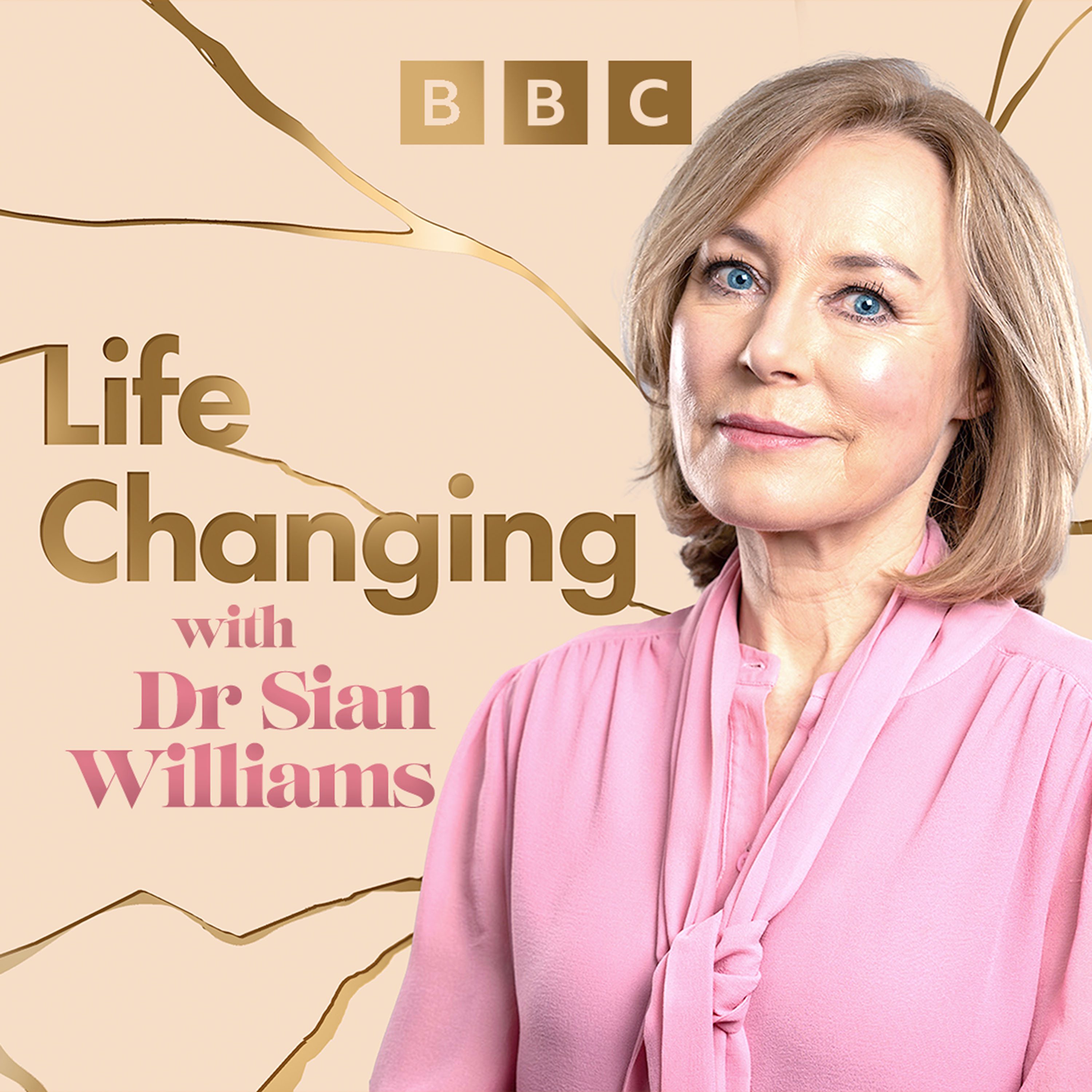
Life Changing
BBC Radio 4
Tech Life
BBC World Service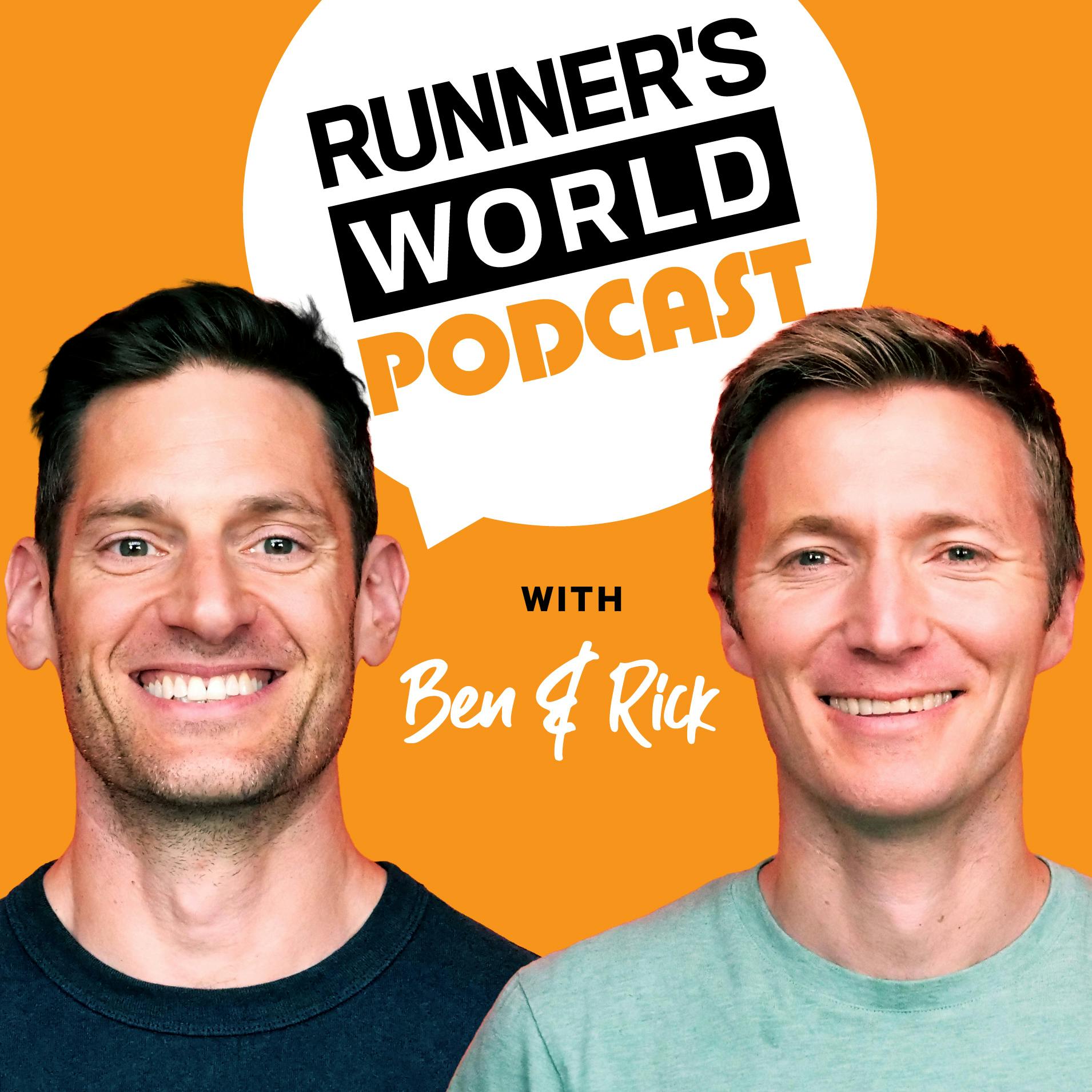
Runner's World Podcast
Runner's World UK
Buzzcast
Buzzsprout
Newscast
BBC News
Understand
BBC Radio 4
Cyber Hack
BBC World Service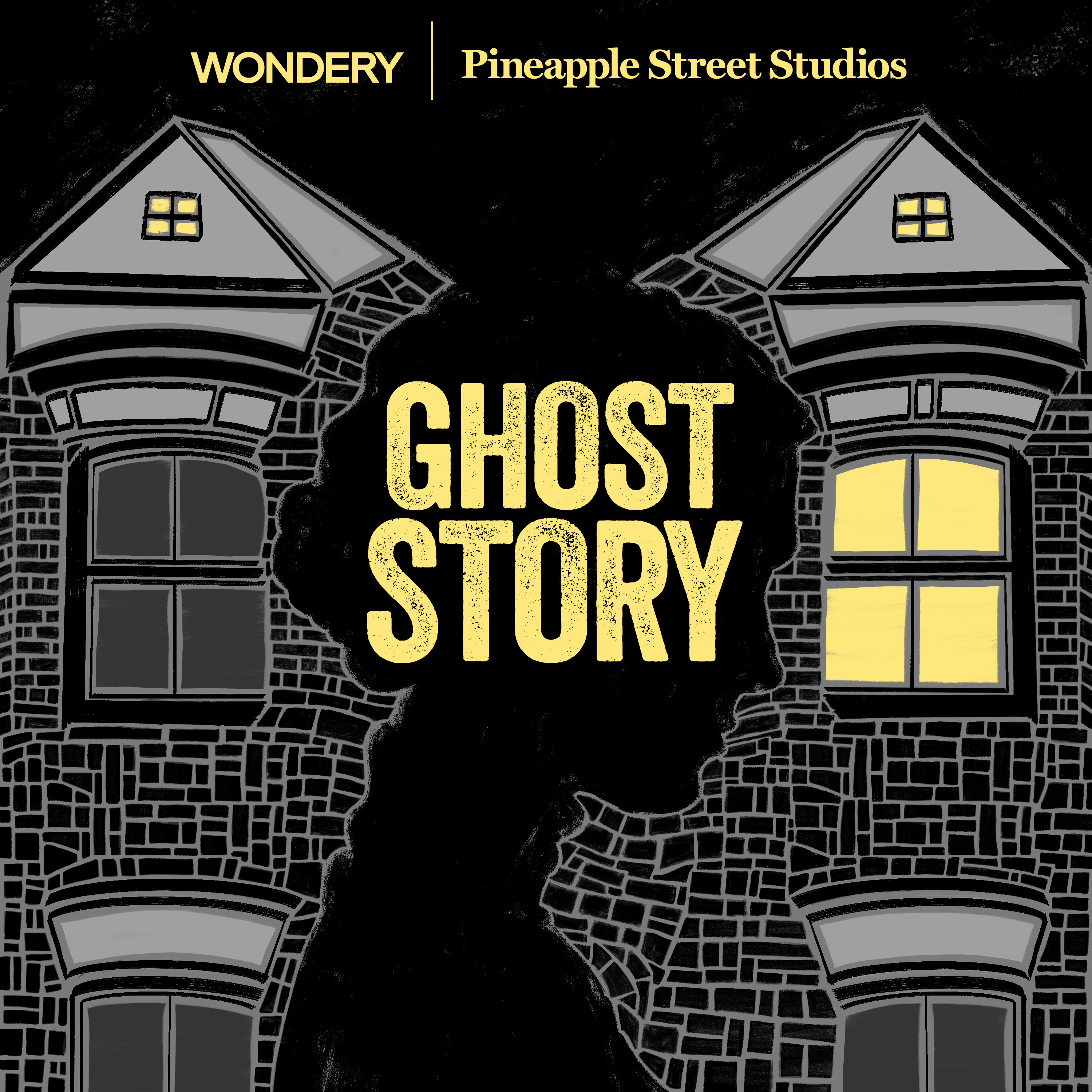
Ghost Story
Wondery | Pineapple Street StudiosDiz Runs Radio: Running, Life, & Everything In Between
Join Denny Krahe, AKA Diz, as he talks with a variety of runners about running, life, and everything in between.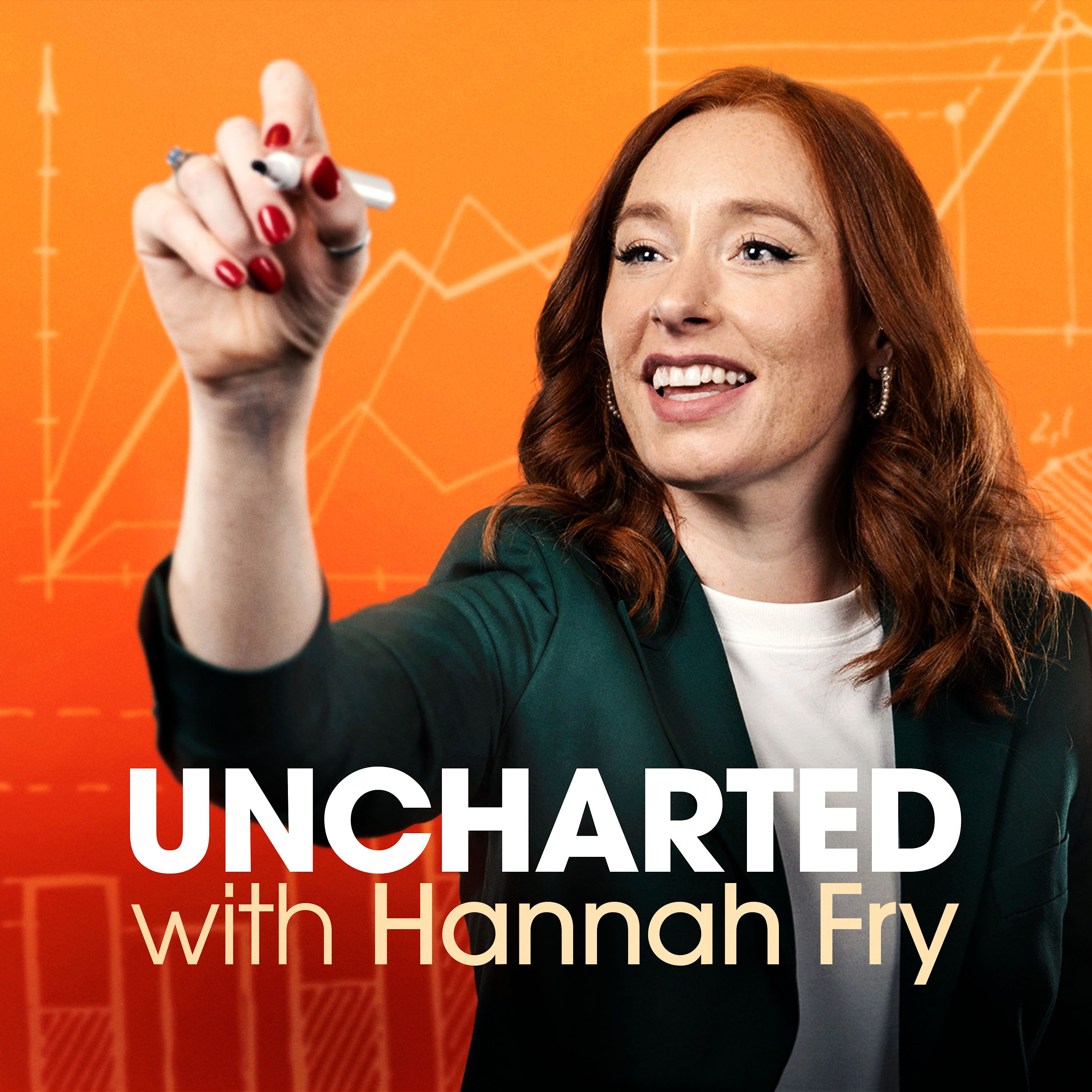
Uncharted with Hannah Fry
BBC Radio 4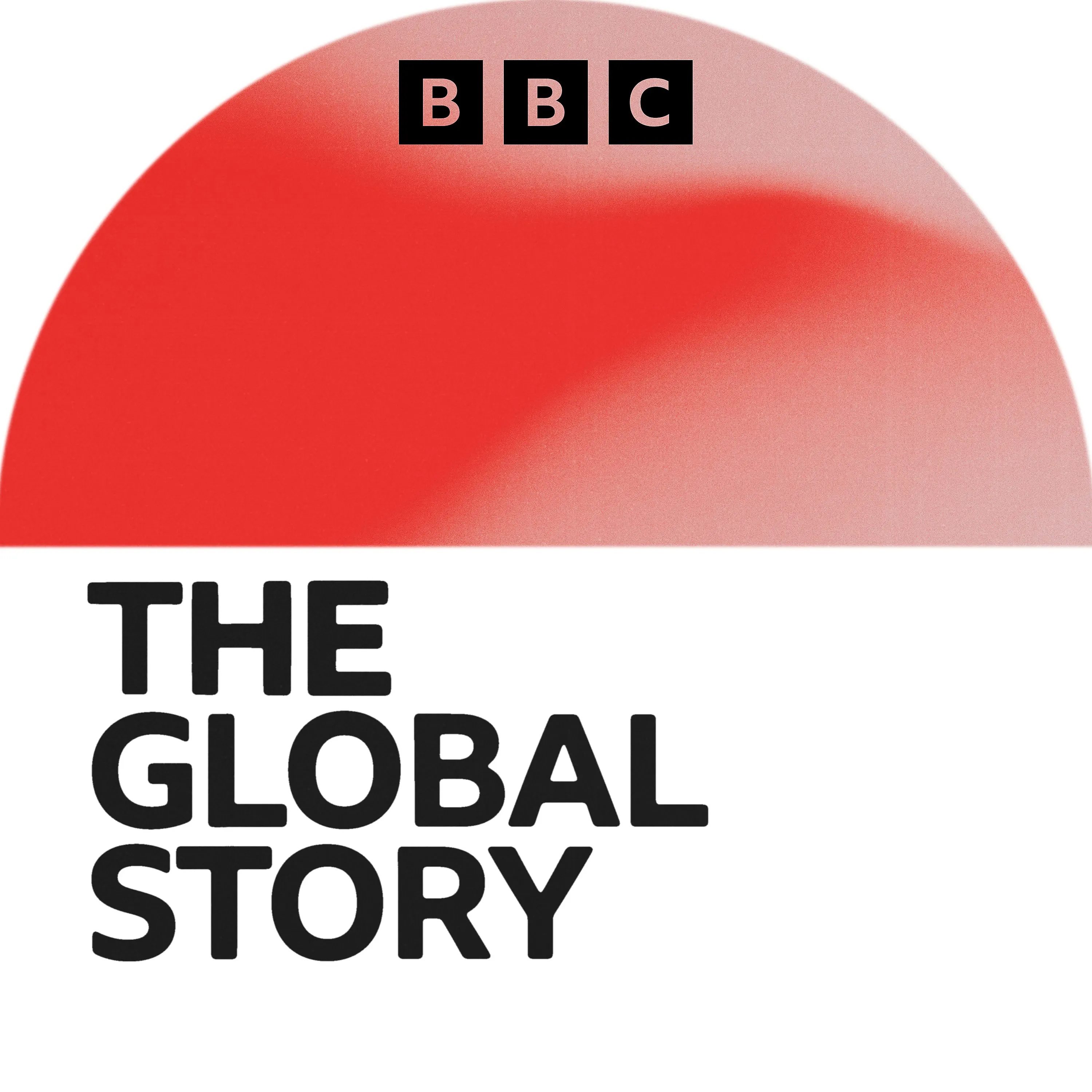
The Global Story
BBC World Service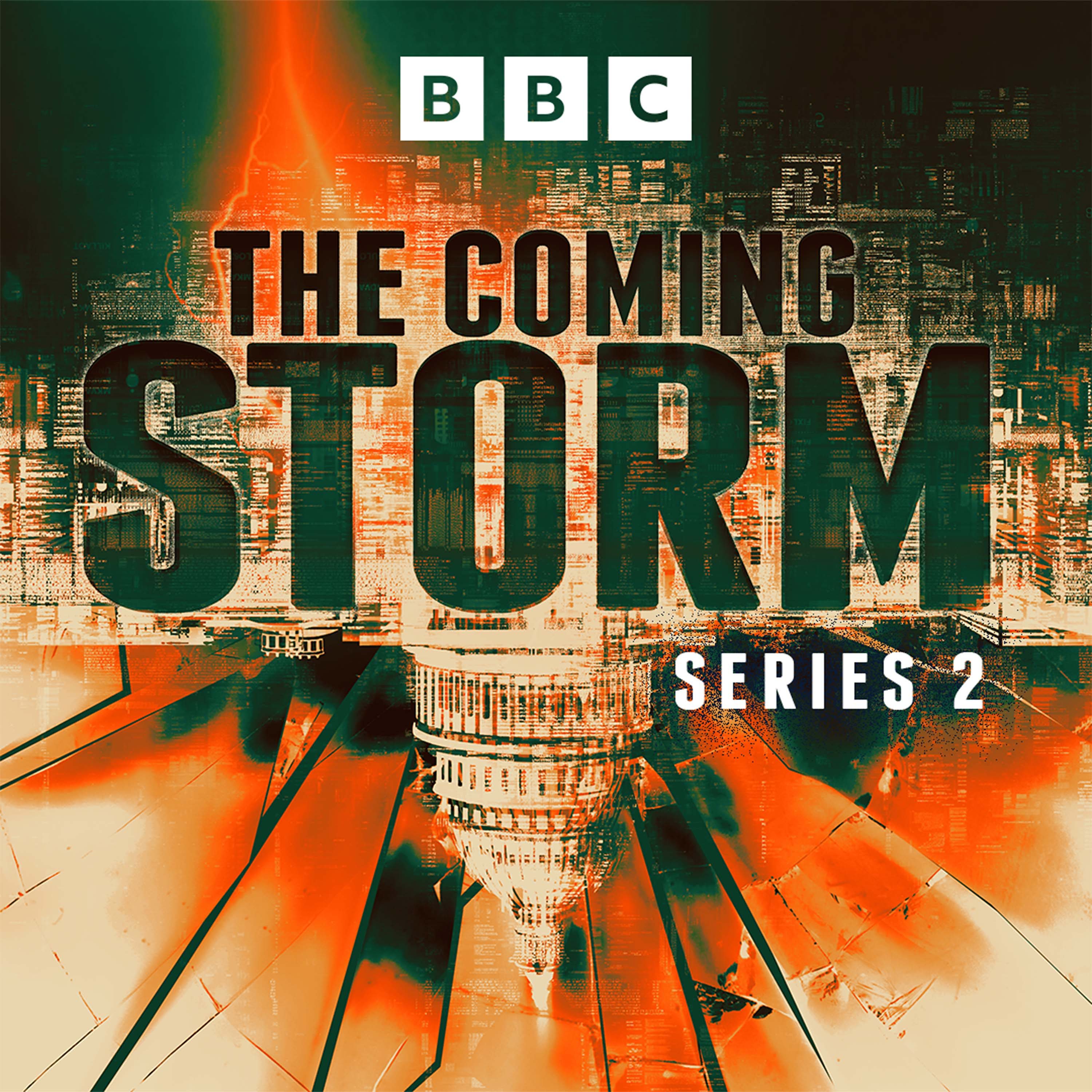
The Coming Storm
BBC Radio 4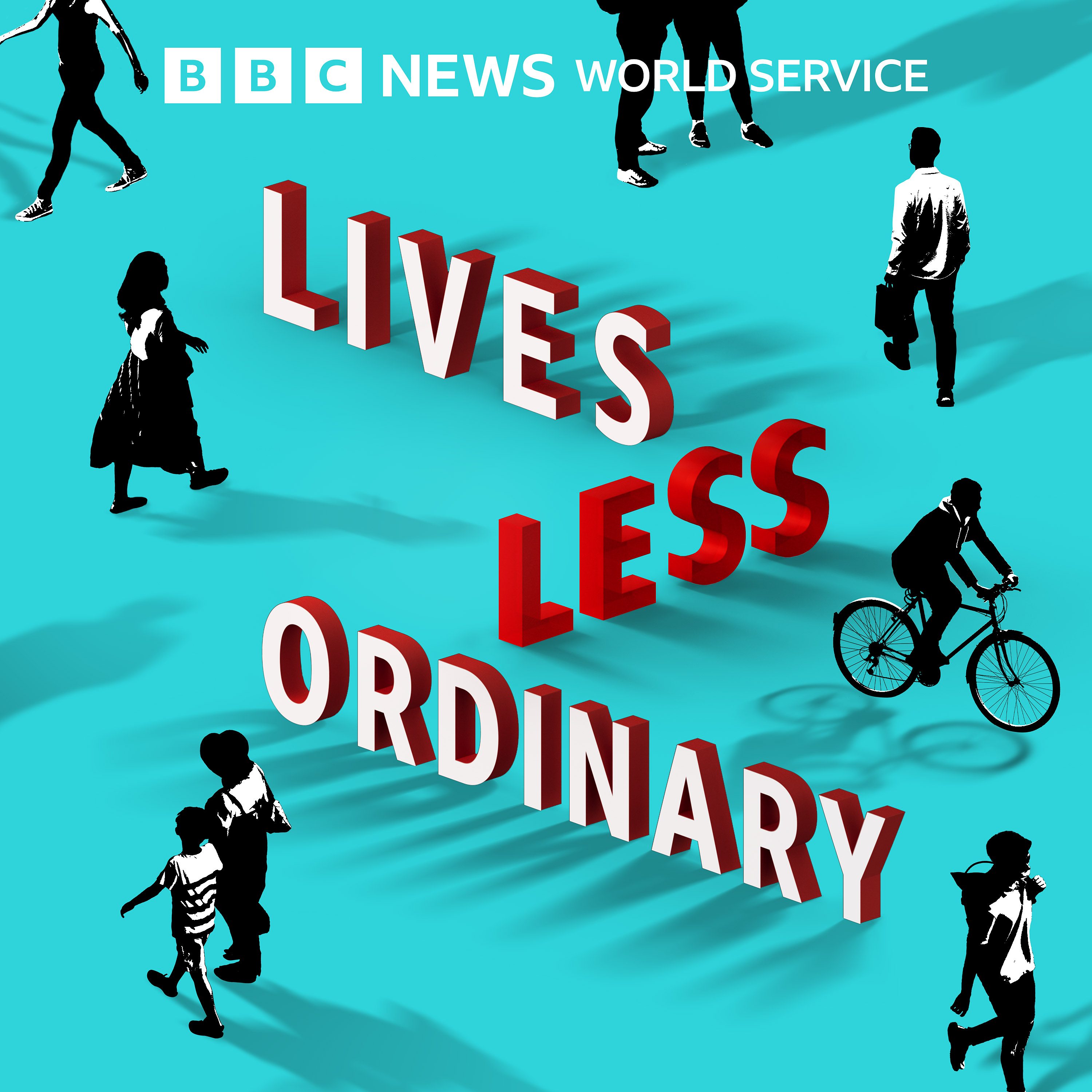
Lives Less Ordinary
BBC World Service
Do Epic Shit Today Podcast
Hannah Mulhern
The Rest Is History
Goalhanger
